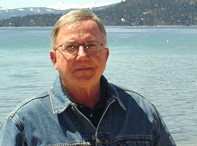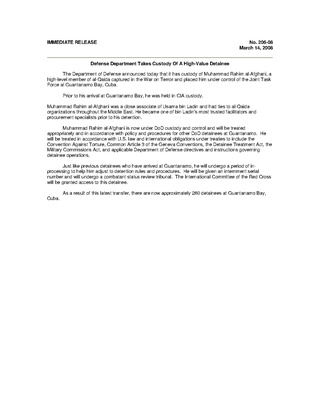
Osama bin Mohammed bin Awad bin Laden was a Saudi-born Islamic dissident and militant leader who was the founder and first general emir of al-Qaeda from 1988 until his death in 2011. Ideologically a pan-Islamist, he participated in the Afghan Jihad against the Soviet Union and supported the activities of the Bosnian mujahideen during the Yugoslav Wars. Bin Laden is most widely known as the mastermind of the September 11 attacks in the United States.

Gulbuddin Hekmatyar is an Afghan politician, former mujahideen leader and drug trafficker. He is the founder and current leader of the Hezb-e-Islami Gulbuddin political party, so called after Mohammad Yunus Khalis split from Hezbi Islami in 1979 to found Hezb-i Islami Khalis. He has twice served as Prime Minister during the 1990s.
Gary Berntsen is an American former Central Intelligence Agency career officer. During his time at the CIA, he served as a Station Chief on three occasions and led several counterterrorism deployments including the United States’ response to the East Africa Embassy bombings and the 9/11 attacks. He was awarded the Distinguished Intelligence Medal in 2000 and the Intelligence Star in 2004.

Gary Charles Schroen was an American intelligence officer who spent 32 years with the Central Intelligence Agency, most notably as a field officer in charge of the initial CIA incursion into Afghanistan in September 2001 to topple the Taliban and destroy Al-Qaeda. He retired as the most decorated CIA officer in history.
Osama bin Laden, the founder and former leader of al-Qaeda, went into hiding following the start of the War in Afghanistan in order to avoid capture by the United States and/or its allies for his role in the September 11 attacks, and having been on the FBI Ten Most Wanted Fugitives list since 1999. After evading capture at the Battle of Tora Bora in December 2001, his whereabouts became unclear, and various rumours about his health, continued role in al-Qaeda, and location were circulated. Bin Laden also released several video and audio recordings during this time.

The Battle of Tora Bora was a military engagement that took place in the cave complex of Tora Bora, eastern Afghanistan, from November 30 – December 17, 2001, during the final stages of the United States invasion of Afghanistan. It was launched by the United States and its allies with the objective to capture or kill Osama bin Laden, the founder and leader of the militant organization al-Qaeda. Al-Qaeda and bin Laden were suspected of being responsible for the September 11 attacks three months prior. Tora Bora is located in the Spīn Ghar mountain range near the Khyber Pass. The U.S. stated that al-Qaeda had its headquarters there and that it was bin Laden's location at the time.
Afghan Arabs are Arab and other Muslim Islamist mujahideen who came to Afghanistan during and following the Soviet–Afghan War to aid the war efforts of native Muslims in the DRA. Despite being called "Afghan" they were not from Afghanistan nor legally citizens of Afghanistan.

On May 2, 2011, Osama bin Laden, the founder and first leader of the Islamist militant group al-Qaeda, was shot and killed at his compound in the Pakistani city of Abbottabad by United States Navy SEALs of SEAL Team Six. The operation, code-named Operation Neptune Spear, was carried out in a CIA-led mission, with the Joint Special Operations Command (JSOC) coordinating the Special Mission Units involved in the raid. In addition to SEAL Team Six, participating units under JSOC included the 160th Special Operations Aviation Regiment (Airborne), also known as the "Night Stalkers," and the CIA's Special Activities Division, which heavily recruits from former JSOC Special Mission Units. The success of the operation ended a nearly decade-long manhunt for bin Laden, who was accused of masterminding the September 11 attacks on the United States.

Operation Cyclone was the code name for the United States Central Intelligence Agency (CIA) program to arm and finance the Afghan mujahideen in Afghanistan from 1979 to 1992, prior to and during the military intervention by the USSR in support of the Democratic Republic of Afghanistan. The mujahideen were also supported by Britain's MI6, who conducted their own separate covert actions. The program leaned heavily towards supporting militant Islamic groups, including groups with jihadist ties, that were favored by the regime of Muhammad Zia-ul-Haq in neighboring Pakistan, rather than other, less ideological Afghan resistance groups that had also been fighting the Soviet-oriented Democratic Republic of Afghanistan administration since before the Soviet intervention.
American officials have reported that the late al Qaeda leader Osama bin Laden had numerous bodyguards. They reported that the detainees held in the Guantanamo Bay detention camp included at least 30 of Bin Laden's bodyguards.

Several sources have alleged that the Central Intelligence Agency (CIA) had ties with Osama bin Laden's faction of "Afghan Arab" fighters when it armed Mujahideen groups to fight the Soviet Union during the Soviet–Afghan War.

Where in the World Is Osama bin Laden? is a 2008 documentary film, conceived by Adam Dell and co-written, produced, directed by, and starring Morgan Spurlock, an American independent filmmaker.

Ghost Wars: The Secret History of the CIA, Afghanistan, and Bin Laden, from the Soviet Invasion to September 10, 2001, abbreviated as Ghost Wars, is a book written by Steve Coll, published in 2004 by Penguin Press. It won the 2005 Pulitzer Prize for General Non-Fiction.
The Afghanistan conflict began in 1978 and has coincided with several notable operations by the United States (U.S.) Central Intelligence Agency (CIA). The first operation, code-named Operation Cyclone, began in mid-1979, during the Presidency of Jimmy Carter. It financed and eventually supplied weapons to the anti-communist mujahideen guerrillas in Afghanistan following an April 1978 coup by the People's Democratic Party of Afghanistan (PDPA) and throughout the nearly ten-year military occupation of Afghanistan by the Soviet Union (U.S.S.R.). Carter's successor, Ronald Reagan, supported an expansion of the Reagan Doctrine, which aided the mujahideen along with several other anti-Soviet resistance movements around the world.
This is a list of activities ostensibly carried out by the U.S. Central Intelligence Agency (CIA) within Pakistan. It has been alleged by such authors as Ahmed Rashid that the CIA and ISI have been waging a clandestine war. The Afghan Taliban—with whom the United States was officially in conflict—was headquartered in Pakistan's Federally Administered Tribal Areas during the war and according to some reports is largely funded by the ISI. The Pakistani government denies this.

Muhammad Rahim is an Afghan who is held in captivity by the United States Government at Guantanamo Bay. He was born in eastern Afghanistan. Muhammad Rahim worked for an Afghan government committee that worked to eliminate opium poppies from the nation. He was forced to leave his job by the Taliban. In 1979, Rahim fled Afghanistan with his brother over the border of Pakistan. Their departure was triggered by the Soviet Union invasion into Afghanistan.

The death of Osama bin Laden on May 2, 2011, gave rise to various conspiracy theories, hoaxes and rumors. These include the ideas that he had died earlier, or that he lived beyond the reported date. Doubts about Bin Laden's death were fueled by the U.S. military's supposed disposal of his body at sea, the decision to not release any photographic or DNA evidence of Bin Laden's death to the public, the contradicting accounts of the incident, and the 25-minute blackout during the raid on Bin Laden's compound during which a live feed from cameras mounted on the helmets of the U.S. special forces was cut off.

Pakistan was alleged to have provided support for Osama bin Laden. These claims have been made both before and after Osama was found living in a compound in Abbottabad, Pakistan and was killed by a team of United States Navy SEALs on 2 May 2011. The compound itself was located just half a mile from Pakistan's premier military training academy Kakul Military Academy (PMA) in Abbottabad. In the aftermath of bin Laden's death, American president Barack Obama asked Pakistan to investigate the network that sustained bin Laden. "We think that there had to be some sort of support network for bin Laden inside of Pakistan", Obama said in a 60 Minutes interview with CBS News. He also added that the United States was not sure "who or what that support network was." In addition to this, in an interview with Time magazine, CIA Director Leon Panetta stated that US-officials did not alert Pakistani counterparts to the raid because they feared the terrorist leader would be warned. However, the documents recovered from bin Laden's compound 'contained nothing to support the idea that bin Laden was protected or supported by the Pakistani officials'. Instead, the documents contained criticism of Pakistani military and future plans for attack against the Pakistani military installations.

The graveyard of empires is a sobriquet often associated with Afghanistan. It originates from the several historical examples of foreign powers having been unable to achieve military victory in Afghanistan in the modern period, including the Soviet Union and, most recently, the United States.
The following is an outline of the series of events that led up the War in Afghanistan (2001–2021).











